Veranstaltungsarchiv Thomas Mann House
April 2024
The Art of Living Together – Democracy & Solidarity: Workshop von Susanne Baer, Sabine_ Hark & Rahel Jaeggi mit Karen Mack, David D. Kim, Jordan Wynne, und Stephen Gardbaum
Los Angeles
9. April 2024, 19 Uhr (PT) | Thomas Mann House Los Angeles | Nur auf Einladung
2024 Fellows Susanne Baer, Rechtswissenschaftlerin und ehemalige Bundesrichterin am Bundesverfassungsgericht, Soziologin Sabine_ Hark und Philosophin Rahel Jaeggi führen eine partizipativen Diskussion im Wohnzimmer des Thomas Mann House. Unter der Moderation von David Kim (UCLA) werden die drei über die Rolle von Solidarität in Demokratien diskutieren und mit Expert:innen aus den Bereichen Wissenschaft, Recht, Community Organizing, Non-Profit-Arbeit und Aktivismus ins Gespräch kommen.
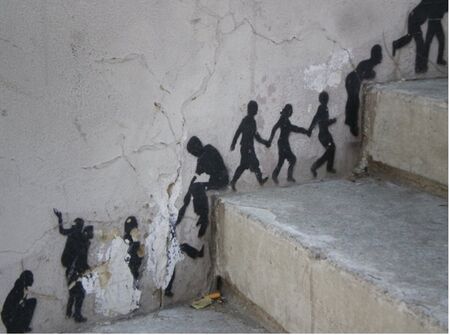
*Diese Veranstaltung findet in englischer Sprache statt*
What kind of solidarity does a functioning democracy need? Can practices of solidarity replace welfare state arrangements? What is the difference between solidarity and charity? And what is the role of institutions versus individual activists or non-profit organizations?
During their time in Los Angeles, Baer, Hark, and Jaeggi are exploring the principle of solidarity from different academic backgrounds. By bringing critical legal studies and comparative constitutionalism into conversation with social philosophy, critical theory, feminist theory, and queer theory, they aim to contribute to a practice of solidarity.
As part of the Thomas Mann House annual theme “Democracy & Vulnerability,” the three scholars argue that solidarity is essential for every democracy to thrive and democratic cooperation, under the rule of law, is crucial for strengthening democratic participation. To achieve this, they stress the importance of clear rules that promote both equality and solidarity in society. In today's Western democracies, we are confronted with various crises: climate change, wars, economic exploitation, pandemics, and violence against marginalized groups, among others. Unsurprisingly, some forces are exploiting these crises and using their democratic power to undermine liberal values, promoting discrimination and exclusion under the guise of democracy. In contrast, solidarity is seen as inclusive and fair. It involves people working together, supporting each other, and addressing common issues. It's not just a social concept; it's also influenced by laws and institutions. Solidarity reflects how we interact and guides us in creating a better society.
Join us at the Thomas Mann House to learn more about their project “The Art of Living Together – Democracy & Solidarity.” Together with L.A.-based experts from academia, law, community organizing, non-profit work, and activism, our three fellows will provide insights into their research and discuss potential ways of practicing solidarity across the Atlantic.
Attendance
Attendance by invitation only.
Participants
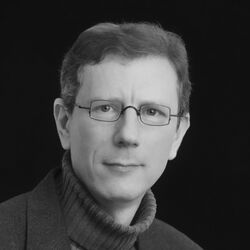
Stephen Gardbaum is the Stephen Yeazell Endowed Chair in Law at UCLA School of Law, and was a previous Faculty Director of the Promise Institute for Human Rights. His research focuses on comparative constitutional law and constitutional theory. Gardbaum's widely-reviewed book The New Commonwealth Model of Constitutionalism: Theory and Practice (Cambridge University Press, 2013) explores a novel form of human rights protection in Canada, New Zealand, and the United Kingdom. Gardbaum’s work has appeared, among other places, in the Harvard Law Review, Stanford Law Review, Michigan Law Review, and the University of Chicago Law Review.
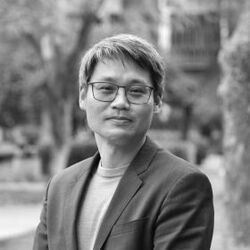
David D. Kim is a professor in the Department of European Languages and Transcultural Studies at UCLA as well as Associate Vice Provost at the International Institute at UCLA. Kim’s scholarly interests range from postcolonial, global, and migration studies and community engagement to human rights, cosmopolitanism, cultural and political theories, global literary histories, and digital humanities. His first monograph is Cosmopolitan Parables (Northwestern University Press, 2017) and his peer-reviewed articles have recently appeared in The German Quarterly, Monatshefte, Gegenwartsliteratur, and Journal of Translation Studies.

Karen Mack created the South LA-based nonprofit LA Commons based on a vision of communities where everyone has the access and freedom to express themselves culturally and to tap the power that creativity provides. Since that time, she and her team have worked in neighborhoods across the city, implementing artistic programs that foster interaction, dialogue and collaboration for a better Los Angeles. LA Commons plays a unique role as a facilitator of local engagement in arts and culture as well as in other important issues.

Jordan Wynne (they/them) is a housing justice and homelessness policy expert that has been working in the Greater Los Angeles area for over seven years. Their accomplishments include serving as the Co-Chair for the Long Beach Continuum of Care Board, Board member of the Long Beach Homeless Coalition; regional organizing director for Everyone In - Long Beach; Community Activation Special for United Way of Greater Los Angeles; and Grants Manager for Long Beach Residents Empowered, in which they secured $800,000 for the organization to pilot the city's first Community Land Trust.
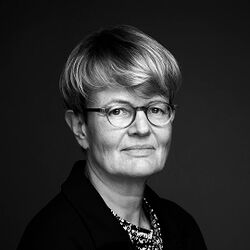
Susanne Baer is Professor of Public Law and Gender Studies at Humboldt-Universität zu Berlin, Lea Bates Global Law Professor at the University of Michigan Law School, and Centennial Professor at LSE London. From 2011 to 2023, she served as a federal judge on the German Constitutional Court. Her work focuses comparatively on constitutionalism, interdisciplinary legal research, and equality law. She is the author and co-author of many publications in German and English, including a textbook on Rechtssoziologie and the casebook Comparative Constitutionalism: Cases and Materials.

Sabine_ Hark has been Professor of Gender Studies and director of the Center for Interdisciplinary Gender Studies at the Technical University of Berlin since 2009. Hark has researched and taught at universities around the globe, including in Germany, Austria, Canada, Switzerland, and the USA. In addition to numerous positions as a board member and co-founder (of, for example, the organization WIR MACHEN DAS – wearedoingit e.V.), she is also co-editor of the journal Feministische Studien.
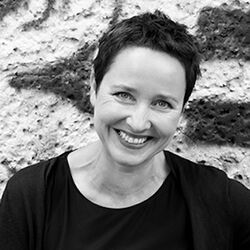
Rahel Jaeggi has been Professor of Philosophy with a focus on Political Philosophy at Humboldt-Universität zu Berlin since 2009 and director of the university’s Centre for Social Critique since 2018. Rahel Jaeggi has researched and taught as a visiting professor at Yale University, Fudan University, and as Theodor Heuss Professor at The New School for Social Research. Jaeggi was also a fellow at the Institute for Advanced Study in Princeton. She is a prominent representative of critical theory, has received numerous awards, and is the author and co-editor of numerous books, most recently Fortschritt und Regression ("Progress and Regression").
Opera & Democracy: Demokratieförderung an der HfMT – Musikwissenschaft und Musikpädagogik im Fokus
Köln
Start: 15:00 Uhr (MEZ) | Kammermusiksaal, Unter Krahnenbäumen 87, 50668 Köln | Eintritt: kostenfrei, mit Anmeldung
Thementag mit Diskussionen und Musik in Zusammenarbeit mit der Reihe Oper & Demokratie des Thomas Mann House, Los Angeles
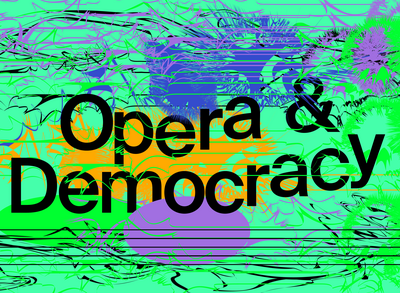
Wie können Musikhochschulen, besonders die Disziplinen Musikwissenschaft und Musikpädagogik, zu einem nachhaltigen, inklusiven und diversen demokratischen Miteinander beitragen? Dieser Frage widmet sich ein Thementag in der Hochschule für Musik und Tanz Köln. Zwei Podiumsdiskussionen, eingerahmt von Musik, loten die Rolle von Bildungseinrichtungen im demokratischen Diskurs aus. Expert*innen aus verschiedenen Bereichen des Musiklebens und aus Bildungsinstitutionen beziehen Stellung und laden das Publikum zum Austausch ein.
Teilnahme
Damit angesichts der beschränkten Anzahl von Plätzen jede:r Interessierte teilnehmen kann, ist für die Teilnahme eine vorherige Anmeldung nötig:
Programm
Beteiligte
Leitung: Kai Hinrich Müller, Musikwissenschaftler und Thomas Mann Fellow 2023/24 und Anne Niessen, Professorin für Musikpädagogik an der HfMT Köln
Moderation: Marco Lombardo, WDR Wuppertal
Musik: Jan-Hendrik Herrmann, Chorleiter
Zeitplan
Teilnehmer:innen
Jan-Hendrik Herrmann studierte Schulmusik und Latin Percussion an der HfMT Köln. Als Bariton und Beatboxer der a cappella-Band Soundescape und als Leiter des Jazzchors der Uni Bonn gewann er mit beiden Ensembles Preise auf nationalen und internationalen a cappella-Festivals und -Wettbewerben. Als Chorleiter, Stimmbildner und Vocalcoach ist er für Workshops, Coachings und Fortbildungen bundesweit unterwegs und arbeitete u.a. mit dem WDR Rundfunkchor, der Kölner a cappella-Gruppe basta und als musikalischer Berater bzw. Coach bei der WDR-Sendung Der beste Chor im Westen. Seine Chor-Arrangements sind im Schott-, Carus-, Bosse-, Helbling- und Ferrimontana-Verlag erschienen und werden von namhaften Chören gesungen. Seit 2021 unterrichtet er an der HfMT Köln Chorleitung Jazz/Pop, Vocal-Arrangement und Gruppenmusizieren sowie an der Hochschule für Musik und Darstellende Künste Frankfurt am Main Pop- und Jazzchorleitung als Gastdozent.
Nach seinem Lehramtsstudium promovierte Johann Honnens ab 2012 im Rahmen des Graduiertenkollegs Das Wissen der Künste an der Universität der Künste Berlin (UdK) mit einer inzwischen mehrfach ausgezeichneten Arbeit zur Rezeption von arabesk-Musik unter deutsch-türkischen Jugendlichen und musikbezogenen Anerkennungsprozessen. Zwischen 2021 und 2023 war er Professor für Musikpädagogik an der HfMT Köln und seit dem Wintersemester 2023/24 an der UdK. Seine Forschungsschwerpunkte liegen in soziologischen und diversitätskritischen Themenfeldern, in qualitativ-empirischer Sozialforschung und in grundlagentheoretische Fragestellungen u.a. zu Hermeneutik und Normativität in der Musikpädagogik.
Hannah Kopp wurde 2001 in Neuss geboren. Im Anschluss an das Abitur begann sie ein Studium für das gymnasiale Lehramt in den Fächern Musik und Mathematik an der HfMT Köln sowie an der Universität zu Köln, das sie Ende des Wintersemesters 2023/24 mit dem Bachelor abschließen wird. Seit 2023 studiert sie zusätzlich in den Studiengängen Elementare Musikpädagogik und Gesangspädagogik. Während des Studiums engagiert sich Hannah Kopp seit 2022 im AStA der HfMT Köln, bei dem sie die Aufgaben des Referats Finanzen II übernimmt. Neben dem Studium leitet sie Kurse in Musikalischer Früherziehung für Kinder im Alter von 4 bis 6 Jahren. Darüber hinaus war sie als Vertretungslehrkraft im Unterrichtsfach Musik für das Gutenberg-Gymnasium tätig.
Marco Lombardo ist Journalist und Moderator. Nach dem Volontariat bei HitRadio FFH in Hessen war er dort jahrelang als Redakteur, Reporter und Moderator tätig. Seit 2009 ist Marco Lombardo TV-Moderator beim WDR Fernsehen und in der ARD. Die Lokalzeit, daheim+unterwegs, diverse Sondersendungen und die ARD-Vormittags-Sendung Live nach neun gehören zu seinen Erfahrungen. In dieser Zeit hat Marco Lombardo viele Veranstaltungen moderiert – Podiumsdiskussionen, Thementage, Galas, Messen. Seit dem Wintersemester 23/24 ist Marco Lombardo Dozent an der HfMT Köln (Konzertmoderation und Musikvermittlung auf der Bühne).
Sabine Meine ist seit 2017 Professorin für Musikwissenschaft an der HfMT Köln. Sie betrachtet Musik in ihrem weiten Bedeutungsraum aus einer dezidiert kulturhistorischen Perspektive, mit Schwerpunkten auf der Musikkultur der Frühen Neuzeit und der Moderne in Italien und Frankreich. Meine hat Musikwissenschaft, Romanistik sowie Schulmusik studiert und zusätzlich zu Promotion und Habilitation das Zweite Staatsexamen für das höhere Lehramt absolviert. Sie war Professorin an der Universität Paderborn/Hochschule für Musik Detmold und acht Jahre beruflich in Italien: Wissenschaftliche Mitarbeiterin am Deutschen Historischen Institut in Rom und Direktorin des Deutschen Studienzentrum in Venedig. An der HfMT Köln leitet sie derzeit das Lehrprojekt Kölner Musikgeschichten. Postmigrantische Kulturen erforschen, vernetzen und verorten, das im April mit Fokus auf Istanbul in Köln startet.
Kai Hinrich Müllers Arbeiten bewegen sich an der Schnittstelle von Wissenschaft und Praxis und verbinden ihn mit renommierten Institutionen in Europa und den USA. Als 2023 Thomas Mann Fellow verantwortet er zurzeit die transatlantische Reihe Oper & Demokratie am Thomas Mann House in Los Angeles. Darüber hinaus ist er Leiter des bauhaus music weekend in Berlin, der Terezín Music Academy im ehemaligen Ghetto Theresienstadt sowie verschiedener Projekte zur kritischen Auseinandersetzung mit Wagners Der Ring des Nibelungen: Wagner-Lesarten von Kent Nagano, Concerto Köln und der Kunststiftung NRW sowie The Wagner Cycles von Jan Vogler, Kent Nagano und den Dresdner Musikfestspielen. Er studierte Musikwissenschaft, Jura und BWL an der Universität Bonn und der HfMT Köln (Promotion 2013; Habilitation 2022). Seine Forschungsschwerpunkte umfassen u.a. Wagner und den Bayreuther Kreis, das Musikleben der Zwischenkriegs- und NS-Zeit, Antisemitismus in der Musikgeschichte, Fragen von Demokratie, Migration und Exil sowie transatlantische Operntraditionen. Aktuelle Buchprojekte widmen sich u.a. den Zusammenhängen von Oper und Demokratie sowie der umfassenden Darstellung der deutsch-amerikanischen Operngeschichte.
Andreas Niessen wuchs im rheinischen Troisdorf auf und lernte in der Musikschule u.a. Cello und Klavier. Sein Studium absolvierte er an der HfMT Köln (Instrumentalpädagogik/Cello und Lehramt Sekundarstufe II) sowie an der Universität zu Köln (Geografie, Erziehungswissenschaften). Musikpädagogische Erfahrungen sammelte Andreas Niessen als Lehrkraft an der Musikschule Dormagen (Cello und Ensemble). Nach dem Referendariat an Realschule und Gymnasium arbeitete er als Lehrer für Musik und Erdkunde an verschiedenen Gymnasien. Von 2003 bis 2018 war er Schulleiter am Geschwister-Scholl-Gymnasium Pulheim, dann wechselte er als Gründungsschulleiter an die Heliosschule »Inklusive Universitätsschule Köln« – Gesamtschule. Als Schulleiter liegen ihm besonders die Themen Inklusion, Beziehungs- und Teamschule und die Förderung der Eigenverantwortung und der Partizipation von Schülerinnen und Schülern am Herzen. Andreas Niessen ist ehrenamtlich tätig u.a. im Sprecher*innen-Team des Schulverbunds Blick über den Zaun sowie bei der Schulleitervereinigung Gesamtschule NRW.
Anne Niessen unterrichtete im Anschluss an ein Lehramtsstudium mit den Fächern Musik und Deutsch an verschiedenen Gymnasien, promovierte im Fach Musikpädagogik zum Singen von Mädchen in der Zeit des Nationalsozialismus und arbeitete anschließend an der Universität Siegen und der Universität zu Köln. Nach ihrer Habilitation im Jahre 2005 zur Unterrichtsplanung von Musiklehrkräften ist sie seit 2013 Professorin für Musikpädagogik an der HfMT Köln, wo sie den Studiengang Master of Arts Musikpädagogik leitet. Ihr Forschungsschwerpunkt liegt in der musikpädagogischen Unterrichtsforschung mit qualitativen empirischen Verfahren; vor allem führt sie Interviewstudien mit Schüler:innen sowie Lehrenden durch. Ein wichtiges Anliegen ihrer wissenschaftlichen Arbeit besteht darin, die unterschiedlichen Perspektiven der verschiedenen Akteur:innen und hegemoniale Strukturen schulischer Musikpädagogik zu erschließen.
Nora Pempel hat Kultur- und Musikwissenschaft studiert. Seit 2021 arbeitet sie im Landesverband der Musikschulen in NRW als Leiterin des Projektes Heimat: Musik. Das Projekt fördert Angebote an öffentlichen Musikschulen in NRW für Geflüchtete und Menschen mit Migrationsgeschichte. In diesem Kontext arbeitet sie an der Diversitätsentwicklung der Musikschulen und des Verbandes. Im Jahr 2023 hat sie außerdem eine Weiterbildung als „Transformationsmanagerin Nachhaltige Kultur“ absolviert und bearbeitet als Nachhaltigkeitsmanagerin dieses Thema für den Verband und die Musikschulen.
Lukas Schumacher, geboren 1997, studiert im Master of Education für das Lehramt an Gymnasien und Gesamtschulen mit den Fächern Musik und Deutsch an der HfMT Köln sowie an der Universität zu Köln. Seine Masterarbeit widmete er dem Thema Demokratiebildung im Musikunterricht. Als ehemaliger AStA-Vorsitzender und durch weiteres Engagement als Studierendenvertreter sammelte er viel Erfahrung im hochschulpolitischen Bereich. Lukas Schumacher war jahrelang als Dirigent eines symphonischen Blasorchesters im Oberbergischen Kreis tätig und arbeitet derzeit als Musiklehrkraft am Kölner Friedrich-Wilhelm-Gymnasium. Zudem ist er Stipendiat der Friedrich-Ebert-Stiftung sowie der Robert-Schumann-Gesellschaft Düsseldorf. Sein Studium wird er im Sommer 2024 beenden.
Antje Valentin ist seit März 2024 Generalsekretärin des Deutschen Musikrates. Die studierte Musikerin und Kulturmanagerin war seit 2011 als Direktorin der Landesmusikakademie NRW tätig. Zuvor arbeitete sie langjährig als Pianistin und Instrumentalpädagogin, leitete die Musikschule Berlin-Friedrichshain und war stellvertretende Leiterin der Landesmusikakademie Berlin. Antje Valentin engagiert sich zudem ehrenamtlich in zahlreichen Gremien, u.a. als Vorsitzende des Übehaus Kray e.V. in Essen, als stellvertretende Vorsitzende des Beirats des Musikinformationszentrums des Deutschen Musikrates und als Vorstandsmitglied des Netzwerk Junge Ohren e.V.
Paradoxes of Solidarity: Vortrag von Rahel Jaeggi
University of California, Los Angeles
12:30 Uhr (PT) | UCLA, Bunche Hall 4357 | Teilnahme kostenfrei mit Anmeldung
Der Fachbereich für Politikwissenschaft an der UCLA, das Internationale Institut und das Thomas Mann House lädt Sie ein zu einem Vortrag von Rahel Jaeggi, Philosophin und 2024 Thomas Mann Fellow. Während ihres Aufenthalts in Los Angeles erforscht Jaeggi die Bedeutung von Solidarität für demokratische Gesellschaften.
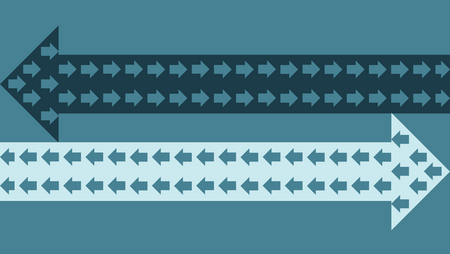
*Diese Veranstaltung findet in englischer Sprache statt*
Solidarity, in a preliminary understanding, means “standing in for each other,” based on a symmetrical, reciprocal, and cooperative relation, mediated through a common cause. Yet, if we work with this definition, three paradoxes (or at least tensions) arise. (1) If we take solidarity to be symmetrical: How can we account for obvious asymmetries in situations where solidarity is needed? (2) Solidarity seems to be bound to a particular situation and group, but then how do we come to grips with its universalistic claims? (3) Solidarity seems to be “given” and “made” at the same time. Rahel Jaeggi’s lecture will address these paradoxes, arguing for an enlarged understanding of symmetry, a bottom-up conception of universality, and a concept of solidaristic practice that allows to understand how solidarities are based on shared experiences but realized through solidaristic action.
Sprecherin
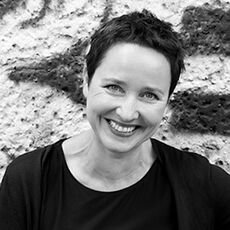
Rahel Jaeggi has been a Professor of Philosophy with a focus on Political Philosophy at Humboldt-Universität zu Berlin since 2009 and director of the university’s Centre for Social Critique since 2018. Rahel Jaeggi has researched and taught as a visiting professor at Yale University, Fudan University, and as Theodor Heuss Professor at The New School for Social Research. Jaeggi was also a fellow at the Institute for Advanced Study in Princeton. She is a prominent representative of critical theory, has received numerous awards, and is the author and co-editor of numerous books, most recently Fortschritt und Regression ("Progress and Regression“), the English translation is forthcoming in the fall of 2024. Rahel Jaeggi is a 2024 Thomas Mann House Fellow in Los Angeles.
Oper & Demokratie: Listening to Exile
New York
1014 - Space for Ideas, das Österreichische Kulturforum New York, das Goethe-Institut New York und das Leo Baeck Institute - New York | Berlin lädt gemeinsam mit dem Musikwissenschaftler und Thomas Mann Fellow 2023 Kai Hinrich Müller und das Thomas Mann Haus, Los Angeles zu vier spannenden Tagen mit Konzerten und Gesprächen im Rahmen der transatlantischen Reihe Oper & Demokratie ein. Die Freiheit der Künste ist essenziell für jede Demokratie, aber welche Rolle spielen die Künste, wenn Demokratien unter Druck geraten? Das Programm in New York widmet sich den Werken und Geschichten von Komponist:innen, die ins Exil gingen, stellt ihre Musik vor und fragt nach dem Verhältnis von Demokratien und Kunst in der heutigen Zeit.
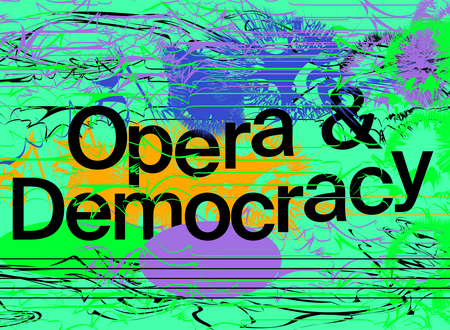
*Die Veranstaltungen finden in englischer Sprache statt*
This series commemorates the centenary of the reopening of Berlin's legendary Krolloper in 1924, one of the leading opera houses of the interwar period and today a symbol of both the renewal of opera in the 20th century and the struggle for democratic values in times of crisis. To honor this anniversary, panel discussions with international scholars and artists will explore the multifaceted history of this important institution and delve into the complex relationship between opera and democracy today. The focus will be on the democratic potential of opera and its possible contributions to a diverse and inclusive society. Topics range from aspects of the democratization of opera to questions of power and representation, new formats, casting and programming policies, audience expectations as well as to academic challenges, and opera's ability to amplify the voices of silenced or persecuted artists. Each conversation will be accompanied by concerts, sometimes world premieres, that present excerpts from rarely performed stage works, among them works by persecuted artists discovered in archives.
Click on the programs to read more about the events and please register for each event individually.
Begin: 6:30 p.m. (EST)
Location: Goethe-Institut New York, 30 Irving Place, New York, NY 10003
Welcome & Keynote: Opera and Democracy by Kai Hinrich Müller followed by a conversation about the past and present of being forced out of a country or a home and the struggles to continue artistic practices elsewhere.
Participants
Brigid Cohen, Associate Professor of Music at New York University. She has taught and published on the politics of 20th-century avant-gardes, archive studies, diaspora and cosmopolitanism theory, 20th-century German-Jewish thought, histories of genocide, and intersections of music, literature, and the visual arts. Her second monograph, Musical Migration and Imperial New York: Early Cold War Scenes, was published by University of Chicago Press in April 2022.
Gracie Golden is Artistic Freedom Initiative’s Senior Officer for Strategic Initiatives & Relocation, providing resettlement support across programs. She has dedicated her career to the intersection of art, cultural heritage, and human rights. Led by immigration and human rights attorneys, Artistic Freedom Initiative facilitates pro bono immigration representation and resettlement assistance for international artists at risk.
Michael P. Steinberg, Brown University, Barnaby Conrad and Mary Critchfield Keeney Professor of History and Music, Professor of German Studies, author of The Afterlife of Moses: Exile, Democracy, Renewal
Attendance
Begin: 7:30 p.m. (EST)
Location: Center for Jewish History, Leo Baeck Institute New York, 15 West 16th Street, New York, NY 10011
The concert introduces two German-Jewish composers in American exile: Paul Aron and Rosy Geiger-Kullmann. Aron, a protagonist of the German interwar avant-garde, founded an opera company in New York in the 1950s to popularize the works of émigrés such as Darius Milhaud, Kurt Weill, Tadeusz Kassern, and Ernst Toch through piano arrangements and English translations. One of these - his English version of Toch’s short opera Egon & Emilie - will be presented alongside exile songs by Aron. Geiger-Kullmann, a successful opera composer of the Weimar Republic, was born in Frankfurt and fled from the Nazis to New York and later to Monterey. Excerpts from her opera Columbus, written after her arrival in New York, and two stage works from her years in Germany have been reconstructed and will be performed in excerpts – a world premiere.
Program
Rosy Geiger-Kullmann: Excerpts from Ritter Lanzelot, Emanuela and Columbus (World Premiere)
Paul Aron: Zwei Lieder nach Gedichten von Christian Morgenstern, No 1. Es ist Nacht, January 26, 1950; In Memoriam … Three Songs (William Butler Yeats), No. 2. To Judd. Had I the Heaven’s, August 24, 1947; Vier Herbstlieder (Herman Hesse), No. 1. Der stille Hain, August 10, 1937, revised: July 29, 1947, No. 4. Ich habe nichts mehr zu sagen, August 7, 1947 (World Premiere)
Ernst Toch (arr. Paul Aron): Edgar & Emily
Moderation: Kai Hinrich Müller (Thomas Mann House, Los Angeles)
Musicians: Manhattan School of Music
Attendance
Begin: 6:30 p.m. (EST)
Location: Austrian Cultural Forum, 11 East 52nd Street, New York, NY 10022
Ruth Schonthal and Erich Zeisl will be presented in a concert at the Austrian Cultural Forum New York: Schonthal, who would have celebrated her 100th birthday in 2024, became an important figure in the New York music scene. She composed several operas, including Princess Maleen, which will be heard in part. Zeisl, on the other hand, lived mainly on the West Coast, where he worked for the film and various educational institutions. Excerpts from his opera fragment Hiob, based on the famous novel by Joseph Roth, will be performed next to Schonthal. Both works are largely unknown today, as are the biographies of their authors.
Program
Ruth Schonthal: Princess Maleen (Excerpts)
Erich Zeisl: Hiob (Excerpts)
Musicians: Manhattan School of Music
Introduction: Kai Hinrich Müller (Thomas Mann House, Los Angeles)
Attendance
Begin: 3:00 p.m. (EST) (doors open 2:30 p.m.)
Location: 1014 - space for ideas, 1014 Fifth Avenue, New York, NY 10028
This concert and dance performance by Miro Magloire’s New Chamber Ballet takes a leap from mid-century composers into the present. The performance starts with two dances set to music by Ursula Mamlok, who fled Germany for Ecuador in 1939 and then moved on to study in New York City in 1940. Once in the US, she became one of her generation's most renowned composers and wrote music in various genres and styles. After a conversation about the role and personal meaning of migration for their arts with German-born choreographer Miro Magloire and composer Alyssa Regent, who hails from Guadeloupe, the performance continues with music of one of Ursula Mamloks students: Pulitzer Prize winner Tania León who was born in Cuba and left in 1967 for New York. The afternoon concludes with a World Premiere ballet set to music by Alyssa Regent.
Program
Dance by New Chamber Ballet, Choreography by Miro Magloire, performed by Anabel Alpert, Megan Foley, Nicole McGinnis, Amber Neff, Rachele Perla, Kayla Schmitt.
Music composed by Ursula Mamlok, Tania León, and Alyssa Regent, performed by Weiyu Wang, soprano; Rea Abel, flute; Clara Cho, cello.
Conversation moderated by Carl Christian Bettendorf
Attendance
Participants
|
Ellie Pope, soprano |
|
Benjamin Warschawski, tenor |
|
Benjamin Sokol, baritone |
|
Weiyu Wang, soprano |
|
Elliot Roman, piano |
|
Rea Abel, flute |
|
Clara Cho, cello |
|
Anabel Alpert |
|
Megan Foley |
|
Nicole McGinnis |
|
Amber Neff |
|
Rachele Perla |
|
Kayla Schmitt |
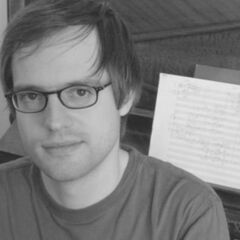
Carl Christian Bettendorf is a New York-based composer/conductor. Born in Germany, his teachers included Wolfgang Rihm and Tristan Murail, and he holds a doctorate from Columbia University. Currently, he serves on the composition faculty of Rowan University (NJ). He has received numerous awards, among them residencies in Paris, Bamberg (Germany), and at MacDowell as well as Fromm Foundation and Kaminsky Fund commissions. As a conductor, Mr. Bettendorf has worked with new-music ensembles in New York and abroad and was director of the Manhattanville and Bates College orchestras. His opera credits include Bard College and the Opéra National de Montpellier (France).
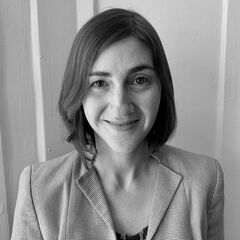
Brigid Cohen is a historical musicologist who specializes in the historiography of musics and musicians in migration. Her research and teaching examine the mass dislocation of peoples over the last two centuries, addressing conditions of empire, globalization, genocide, exile, and minoritized citizenship. This intellectual program stems from her conviction that music assumes special value under the pressure of conditions of uprooting. Music serves as a mode of self-fashioning, secures new (and old) community bonds, and brings individuals together in listening, speech, and action. It also interacts in variegated ways with the silences that emerge from troubled sites of memory.
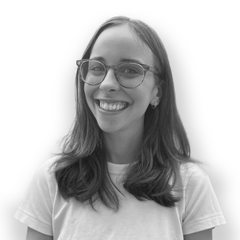
Gracie Golden serves as Artistic Freedom Initiative’s Senior Officer of Strategic Initiatives & Relocation, providing resettlement support across programs. She has dedicated her career to the intersection of art, cultural heritage, and human rights. Ms. Golden has six years’ experience coordinating initiatives for the University of Pennsylvania’s Penn Cultural Heritage Center, and has contributed to research and curatorial projects at the Smithsonian Cultural Rescue Initiative. Prior to joining AFI, Ms. Golden received an MA in anthropology from the University of Pennsylvania. She also holds a BA in anthropology and the history of art from Johns Hopkins University.
Tania León (b. Havana, Cuba) is highly regarded as a composer, conductor, educator, and advisor to arts organizations. Her orchestral work Stride, commissioned by the New York Philharmonic, was awarded the 2021 Pulitzer Prize in Music. In 2022, she was named a recipient of the 45th Annual Kennedy Center Honors for lifetime artistic achievements. In 2023, she was awarded the Michael Ludwig Nemmers Prize in Music Composition from Northwestern University. Most recently, León became the London Philharmonic Orchestra’s next Composer-in-Residence—a post she will hold for two seasons, beginning in September 2023. She will also hold Carnegie Hall’s Richard and Barbara Debs Composer’s Chair for its 2023-2024 season.
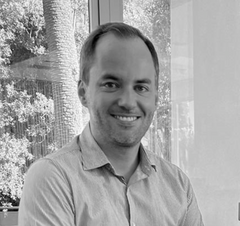
Kai Hinrich Müller is one of the emerging festival makers at the intersection of scholarship and practice. His work fosters cultural dialogues across continents and connects him with renowned institutions in Europe and the United States. He is the director of the bauhaus music festival in Berlin and the Terezín Music Academy in the former ghetto of Theresienstadt, an initiative of Musica Non Grata, for which he has curated numerous programs on artists persecuted by the Nazis. He has held several fellowships in Germany and the US, most recently at the Thomas Mann House in Los Angeles, where he initiated the transatlantic festival series Opera & Democracy. Kai studied musicology, law and business administration (PhD 2013; habilitation 2022) and teaches at the Cologne University of Music and Dance. His current research interests include Richard Wagner and the Bayreuth Circle, antisemitism in music history, musical life in the interwar and Nazi years, the ensuing period of exile in North America, as well as transatlantic opera traditions.
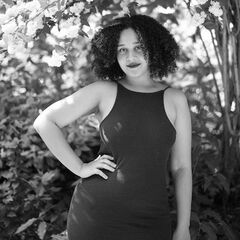
Alyssa Regent is a New York-based composer originally from the islands of Guadeloupe. She has participated in several music festivals and programs such as the 77th Composer’s Conference, String Quartet Evolution at the Banff Center (Canada), New Music on the Point and the Lucerne Music Festival (Switzerland). In 2023, she was awarded the Ascap Morton Gould Young Composer Award. She studied composition with Suzanne Farrin, David Fulmer, Marcos Balter and George Lewis and is currently pursuing a DMA at Columbia University. She is inspired by what she calls “the unseen”, seeking to evoke passions and sensations that are deeply rooted in introspection. She harvests from the ethereal, the enigmatic intersections between music and spirituality. She loves to think about music as an exploration of the spiritual and emotional dimensions of the human experience.
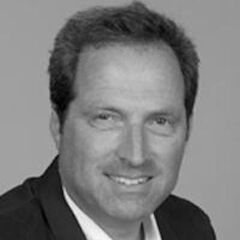
Michael P. Steinberg is the Barnaby Conrad and Mary Critchfield Keeney Professor of History, and Professor of Music and German Studies at Brown University. From 2016 to 2018 he served as president of the American Academy in Berlin. At Brown he served as the founding director of the Cogut Center for the Humanities (2005-2015) and as Vice Provost for the Arts (2015-16). His books include The Trouble with Wagner (Chicago, 2018) as well as the edited volume Makers of Jewish Modernity (Princeton, 2016; winner of the National Jewish Book Award for non-fiction); Listening to Reason: Culture, Music, and Subjectivity in 19th-Century Music (Princeton, 2004), and The Meaning of the Salzburg Festival (Cornell, 2000), of which the German edition (Ursprung und Ideologie der Salzburger Festspiele; Anton Pustet Verlag, 2000) won Austria's Victor Adler Staatspreis in 2001.
The series is initiated by the Thomas Mann House and curated by musicologist and 2023 Thomas Mann Fellow
Kai Hinrich Müller.

Student Council on "Democracy and Vulnerability" – mit Allison Lee
Online
Online Interview | 16 Uhr (PT)
Das Wende Museum, dublab radio, und das Thomas Mann House laden Sie ein zur April Folge unserer monatlichen Interviewreihe zum Thema „Democracy & Vulnerability.“ Wie sollte eine Demokratie mit ihren eigenen Schwachstellen umgehen? Wie müssen sich Demokratien entwickeln, um erfolgreich mit den weltweit zunehmenden ökologischen Krisen, geopolitischen Spannungen, wirtschaftlichen Ungleichheiten und Kulturkriegen umzugehen? Wie viel Verwundbarkeit kann eine Demokratie ertragen? Der Gast für das April-Programm ist Managing Director bei PEN America, Allison Lee.

*Diese Veranstaltung findet in englischer Sprache statt*
The Student Council consists of a team of highly engaged, talented, and diverse undergraduate and graduate students who invite prominent guest speakers to discuss topics relating to society, politics, culture, and art. In conversation with academics, journalists, politicians, and artists, the students will explore the various threats to democratic institutions and principles worldwide, as well as strategies to potentially overcome these threats.
April Speaker
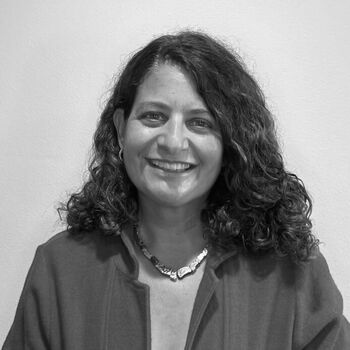
The guest speaker for our April program is Allison Lee, who serves as PEN America’s Los Angeles Director. She was the Chief Development Officer for TIME’S UP, a non-profit organization dedicated to promoting gender equity and ending sexual violence in the workplace. She has previously served as Vice President of External Affairs at Bet Tzedek Legal Services, where she worked, among other things, to launch their Rapid Response Family Immigration Project and Transgender Advocacy Program. Prior to that, Allison served for eight years as the founding Executive Director of American Jewish World Service – Southern California. Allison received her B.A. in Political Science and American Studies from Tufts University.
Watch our February interview with Triston Ezidore, member of the Culver City School Board.
You can watch previous episodes on YouTube, listen to the recordings on dublab radio, or read our students' recap on the Thomas Mann House blog.
Meet the 2024 Student Council
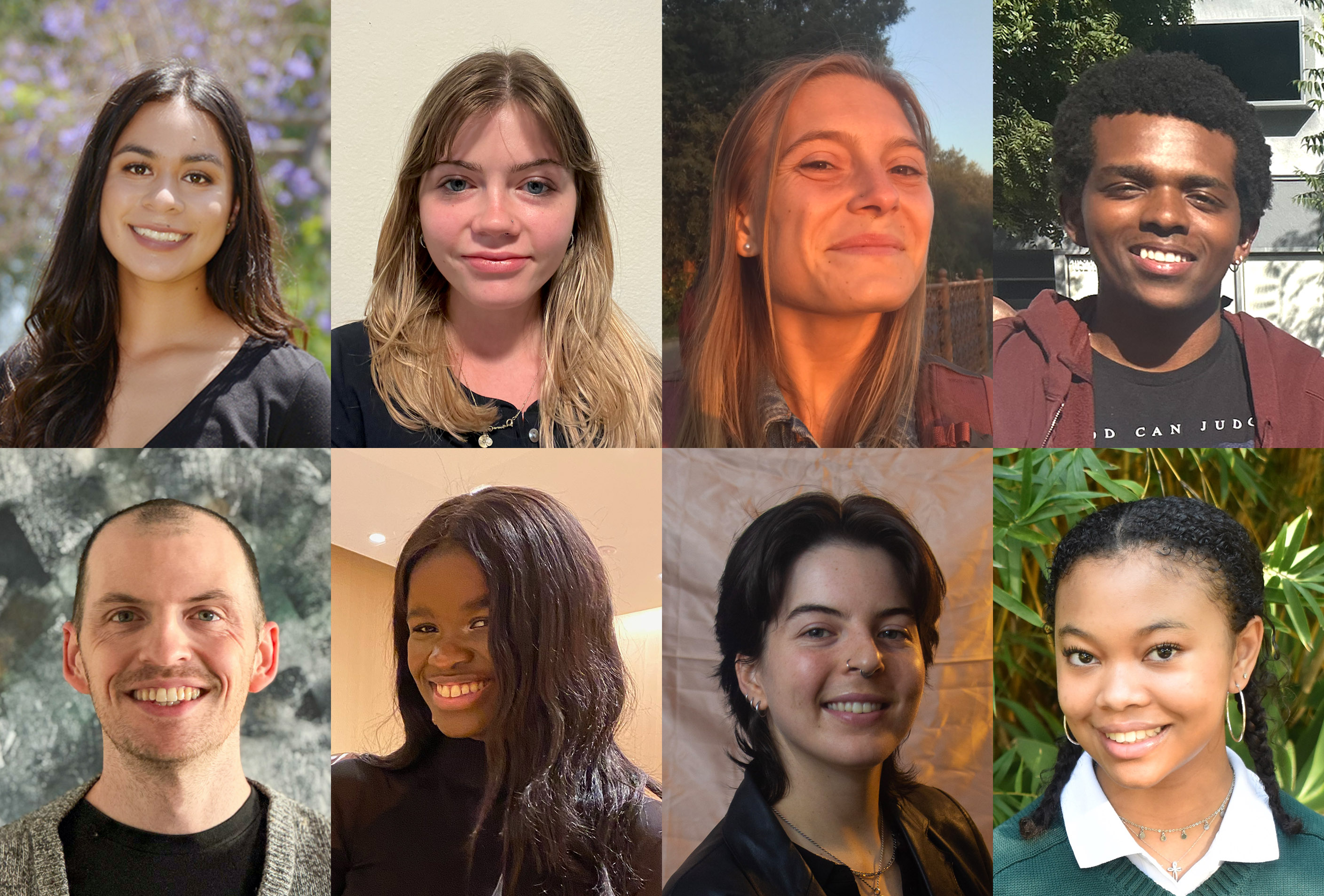
Sara Abrahamsson is a fourth-year student at UCLA studying Art History and French. As a culmination of her artistic and academic interest in political graphics, Sara is currently writing her senior thesis paper on the internationalist poster art of post-revolutionary Cuba. Upon graduating, she plans to continue working in museums before pursuing graduate studies in Art History or Art Conservation.
Amy Cabrales is a First-Generation fourth-year undergraduate student at UCLA, studying Sociology and the Russian Language. She is a Mexican-American, Los Angeles native born in Lynwood, California. Her career interests include cross-cultural education via museum work or language instruction and immigrant resettlement, while her academic interests include immigrant integration and self-identity across immigrant generations. She is anticipating returning to Almaty, Kazakhstan for the 2024-25 academic year to inform these interests and advance her Russian proficiency.
Elsa Coony is a fourth-year student at the University of California, Los Angeles double majoring in Global Studies and German. She has previously worked at the United States Holocaust Memorial Museum as both a docent and translator and is excited to join this year's council. In the future, she hopes to pursue a career in international development.
Biruke Dix is currently a 2nd year student at UCLA studying Applied Mathematics. He joined the Wende Student Council in 2024 and is deeply invested in the ever-changing properties of art as well as social habits. He hopes that he can create language and conversation that promotes the spread of cultural shifts and social justice.
Matthew Jones is a third-year PhD student in Claremont Graduate University’s Cultural Studies and Museum Studies program. His research currently explores how sites connected to authoritarian regimes function as pilgrimage destinations and what strategies states and institutions employ to reduce extremist attachment at these sites. He is thrilled to continue his training with the Wende Museum through this collaboration with the Thomas Mann House.
Emma Larson is a master's student at Columbia University's Harriman Institute of Russian, Eurasian, and Eastern European Studies. There, she focuses on the gender, social, and political history of Central Asia. Before starting at Columbia, Emma taught English in Kazakhstan with the Fulbright Program. She graduated from Williams College with degrees in History and Russian in 2021.
Zora Nelson is a current undergraduate student at New York University, where she is studying Harp Performance and Media, Culture, and Communication. As an east coaster born and raised in Philadelphia, Pennsylvania, she discovered the Wende Museum in the summer of 2022 and is honored to be a part of the council. With a passion for writing, Zora sees a future in storytelling to promote social justice.
Lexi Tooley is a current sophomore at the University of Pennsylvania majoring in Political Science and Art History, minoring in Chinese Language and Culture. She is originally from Los Angeles, California, and attended the Archer School for Girls. Lexi has been working with the Wende Museum for the past 2 years. She looks forward to continuing the search for truth and examining the vulnerability of democracy through this program!














